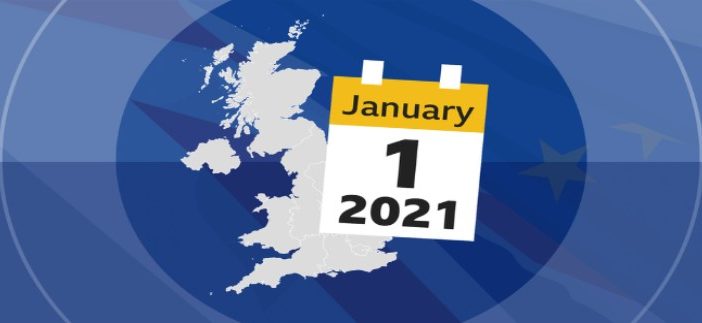From now on free movement of people between the UK and the EU will cease. With the exception of Irish citizens, EU nationals and non-EU nationals will be treated in the same way when it comes to entering the UK. Anyone who wants to come to the UK to work, live or study will have to apply for a visa.
In summary
EU nationals who are already in the UK will have 6 months in which to apply for residency under the new EU Settlement Scheme.
Any new recruits from outside the UK will have to apply for permission to enter the UK under the new points based system. It will be necessary to satisfy different criteria in order to qualify. Points can be obtained for having a job offer from a Home Office licensed sponsor; having sufficient knowledge of the English language; and by receiving a salary of at least £25,600 a year.
The legal basis for these changes is found in the Immigration and Social Security Co-ordination (EU Withdrawal) Act 2020, which received royal assent on 11 November 2020. The Act makes provision to end rights to free movement of EU nationals and their family members. It also modifies EU legislation relating to social security co-ordination between the UK and the EU.
The resulting changes to legislation will pose a challenge to many UK employers. The government says its intention is to treat EU and non-EU citizens equally and that it will aim to attract people who can contribute to the UK economy. In response to Brexit, clients are encouraged to plan ahead, both in relation to considering future recruitment needs and looking after the requirements of current employees. Many aspects of the UK and the European Union’s future relationship remain uncertain – but we already know some things will change from today.
Here are some of the most important things for individual citizens to think about.
* From January, to visit any EU country – or Switzerland, Norway, Iceland and Liechtenstein – make sure you have:
* At least six months left on your passport – except for trips to Ireland, which is part of the Common Travel Area (CTA).
* Travel insurance with health cover. The current EHIC scheme will no longer apply.
* Checked with your mobile provider. No UK mobile firm currently plans to bring back roaming charges but the guarantee of free roaming will end.
* Obtained an animal health certificate from your vet 10 days before you travel, if you are travelling with your pet, including to Northern Ireland. The current EU pet passport scheme will no longer apply.
You’ll stand in a different queue at borders
At border control, you should use separate lanes from EU, EEA and Swiss citizens.
Tourists will be able to travel without a visa to Schengen area countries – which includes most EU nations and Iceland, Norway, Switzerland and Liechtenstein – for up to 90 days in any 180-day period.
So, a four-day long weekend in Portugal at Easter, followed by a fortnight in France in June, would count as 18 days towards your 90-day limit.
From 2022, UK nationals must pay for an electronic authorization to travel to the Schengen area – similar to the ESTA system in the US.
For countries outside the Schengen zone, the rules are similar – but check with the individual country.
Duty-free shopping will return
Duty-free shopping will be available if you travel to the EU from 2021.
When the UK was an EU member, you were allowed to bring unlimited amounts of alcohol and tobacco back from an EU country without paying any duty at the border, as long as duty had been paid in the country where you bought it and you could prove it was for your own use.
There will now be limits to the amount you can bring in duty-free from the EU, as there are for arrivals from non-EU countries.
But that amount of tobacco and alcohol will increase, so you will be able to bring 18 litres of still wine and 42 litres of beer, for example.
However there will no longer be tax-free airport sales of goods such as electronics and clothing.
VAT refunds for overseas visitors in UK shops will also be removed.
New rules for UK citizens who want to move to the EU
From now on, free movement of people between the UK and the EU will end.
If you’re already living in an EU country, you will have certain protections under the withdrawal agreement.
But even then, you should check that country’s specific rules. You may need to register or apply for residency, get new documents, or meet specific requirements – like having a job.
For example, UK nationals living or planning to live in France will need to obtain new residents’ permits.
If you plan to move to the EU in 2021, you will no longer have an automatic right to live or work there.
The rules and the exact required “paperwork” will depend on the country you want to move to and the reason for your move.
You should check the rules for the country that you are intending to move to.
People planning to move to Ireland will be largely unaffected.
New rules for EU citizens living in the UK
If you’re an EU citizen living in the UK by 31 December 2020 – or from Iceland, Liechtenstein, Norway or Switzerland – your rights will remain the same until 30 June 2021.
But you should check if you can stay after that. You’ll need to become a UK citizen, or apply to the EU Settlement Scheme.
Again, because of the Common Travel Area, rights of Irish citizens will not change.
There’ll be a new UK immigration system
From this month, there’ll be a new points-based system for foreign citizens (except Irish nationals) wanting to move to the UK.
The government says it’ll treat EU and non-EU citizens equally and will aim to attract people who can contribute to the UK economy.
People wanting to move to the UK to work, live or study will have to apply, and pay for, a visa.
It will cost £348 to apply for a student visa from outside the UK, or £475 to extend or switch one from inside the UK.
Applying for a visa for a skilled worker will cost between £610 and £1,408 per person unless they have skills that the country is short of.
They will also have to pay a health surcharge of £624 per person per year, unless they are healthcare workers.
EU, EEA and Swiss citizens won’t require a visa for tourist visits to the UK of up to six months.
There’s also guidance for UK nationals living abroad planning to return home with family members who aren’t UK citizens.
Trade will be different, inside and outside the UK
Importers and exporters will need to make customs declarations, as if they were dealing with countries elsewhere in the world.
Some products, including plants, live animals and some foods, will also need special licenses and certificates. Others will have to be labelled in specific ways.
But in response to the devastating impact of the COVID-19 crisis on many businesses, the UK government has chosen to delay by six months the imposition of full controls on goods entering Great Britain from the EU, although there will still be checks for controlled substances.
Northern Ireland
The UK and EU have agreed to keep an all-but-invisible border, without checkpoints, between Northern Ireland and the Republic of Ireland (which remains in the EU).
Northern Ireland will continue to follow many of the EU’s rules, meaning that lorries can continue to drive across the border without having to be inspected.
However, some new checks will be needed on certain goods arriving into Northern Ireland from the rest of the UK (England, Scotland, Wales) instead.
Food products – such as meat, fish and eggs – will need to be checked to ensure they comply with EU standards. However, in order to reduce any potential disruption, supermarkets will be given an initial three-month “grace period” where the rules will not be enforced on the food they bring into Northern Ireland. Certain meat products will have a longer six-month grace period.
What happens after this period is unclear, and will be the subject of future negotiations.
An agreement has also been reached to eliminate tariffs – extra charges on goods – for most Great Britain-Northern Ireland trade. This will apply even if there’s no UK-EU trade deal in place.
However, some new paperwork will be required from today, so businesses will need be ready for the changes. ♦




